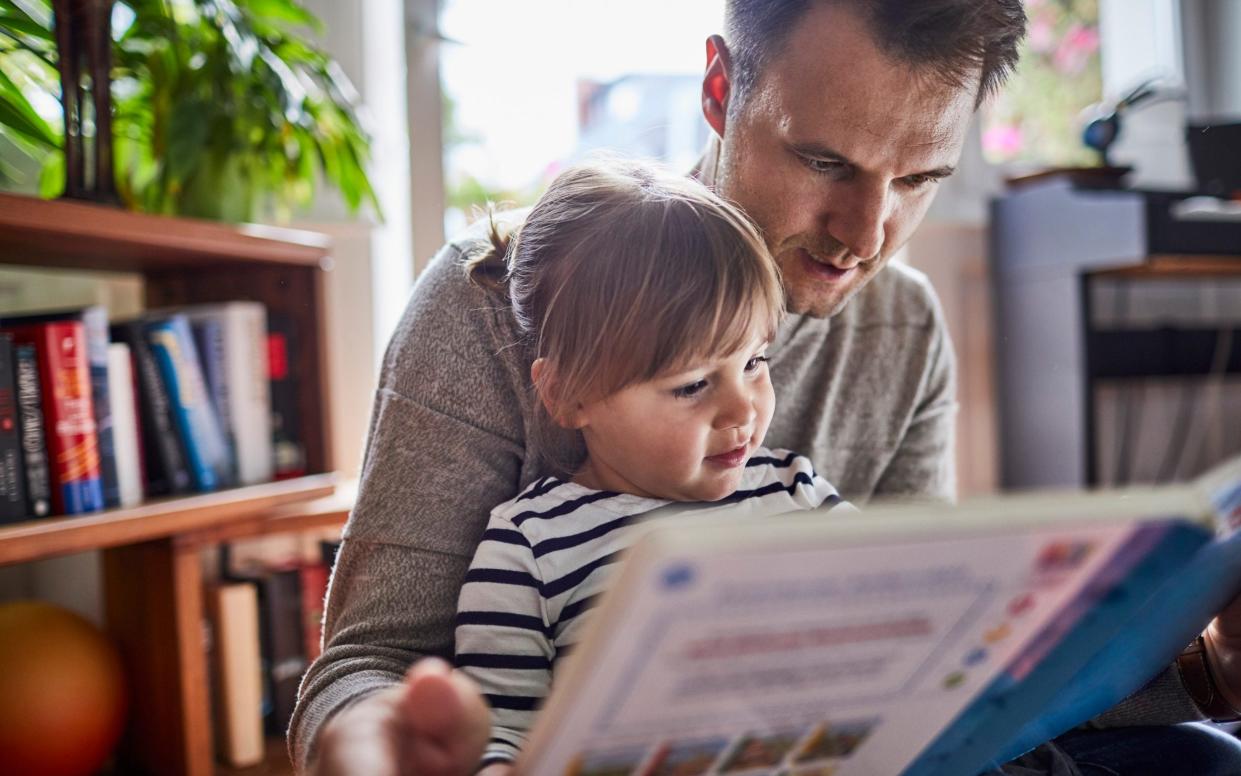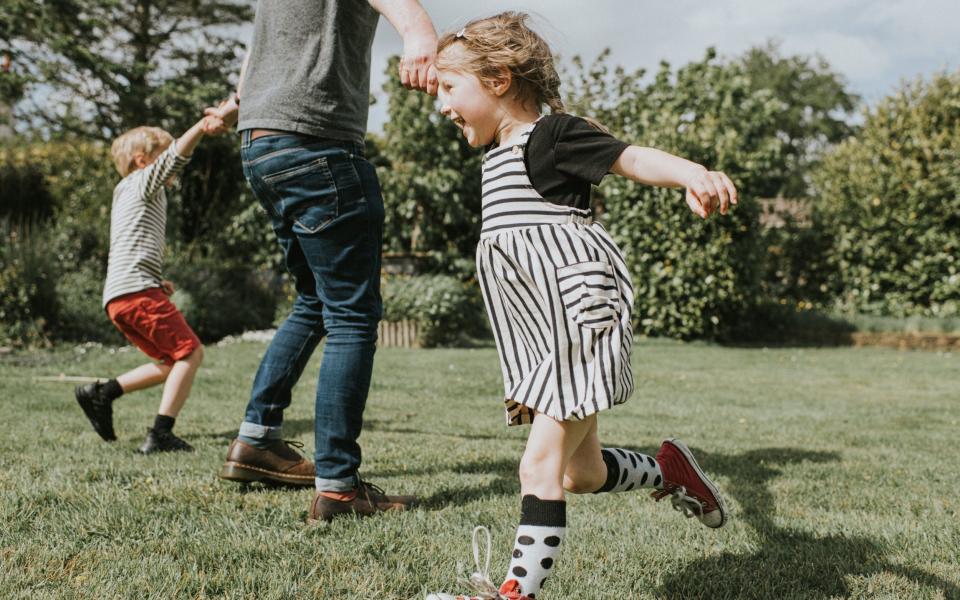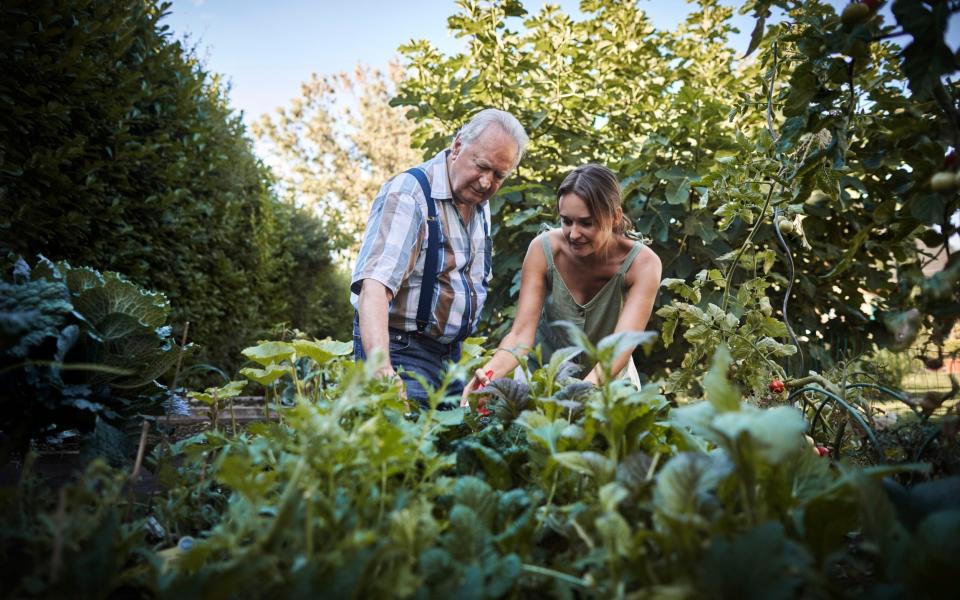Why being a good dad matters so much (at every stage of your child’s life)

My father has taught me many vital life skills. How to tell a Merlot from a Malbec. The best way to sharpen a knife. The joy of humming, loudly, wherever you go (public or private).
But when it comes to those facets of child development that some might consider, well, more profound, both science and society have traditionally focused on the influence and impact of mothers.
A growing body of research is now challenging that narrative. Mothers do have a mighty influence, but studies show that fathers have a unique and profound impact on their children’s development – from their mental health to their academic achievement via their behaviour.
And so, suggests Adrienne Burgess, head of research at Fatherhood Institute: “we should really let fathers know how important they are”.

Babies
Male role models are important even in the first year
The health benefits of breastfeeding are well documented – fewer infections for the baby, a reduced risk of obesity and more. Less well known is the role that dads can play in all this. “A mother is more likely to breastfeed for longer if the father is supportive of that breastfeeding,” says Burgess.
There’s more. Another study found that “couple supportiveness” (each parent backing the other up, and helping each other out) during a baby’s first year was associated with them exhibiting fewer “externalising problems” (rule breaking, aggression and impulsivity, for example) eight to 10 years later.
So, what to do?
“There’s evidence that if couples have more egalitarian gender-role beliefs, the father’s communication skills are good, he likes to play and is a sensitive responder, then he’s setting his children up for the most positive outcomes, even in that first year in life,” says Burgess. This, she points out, is why the right to decent paternal leave is so important.
The influence of interaction
In 2017, a study conducted by Imperial College London, King’s College London and Oxford University found that three-to-six-month-old babies whose fathers were engaged and sensitive when playing with them, performed better in cognitive tests by the age of two.
Yet more research suggests that regular interaction with fathers during infancy correlates with better socioemotional behaviour (such as the way they manage relationships and their own emotions) at three.
Those families without biological fathers need not panic, suggests Dr Sandra Wheatley, a psychologist with a special interest in families. “It’s about having a strong male role model in a child’s life,” she explains. “Someone they see regularly, who they feel they know and who they believe knows them. What’s really important is that they know that they are not just for today. They were around yesterday and will be around tomorrow.”
So, what to do?
Basically – push on with the chores you’re already ticking off, just be sure to put your phone down. “While you’re changing a nappy, feeding the baby or even doing the washing up, you might also be singing silly songs, pulling funny faces,” says Wheatley. “Whatever it is make sure you are interacting, rather than just being on a parallel life-course. Be prepared to get down to their level, literally, but also emotionally and socially.” Playing peekaboo and singing The Wheels on the Bus are more profound than they first appear.
Toddlers
Rough-and-tumble teaching
“Our data tells us that overall, kids tend to seek out rough-and-tumble play more with dads than mums,” says Dr Emily Freeman from the School of Psychological Sciences at Australia’s University of Newcastle and a leading expert in this kind of play.
Energetic, physical play builds children’s strength, balance and coordination. In fact, Freeman’s research suggests that those who play-fight, wrestle and roll around on the floor have a lower risk of injury.
The benefits of play-fighting with dad extend way beyond the physical, however. “Kids learn how to read facial expressions and body language,” says Freeman. “Is my play partner having fun, or am I being a bit too rough? Learning these skills flows into things like learning how to set and respect boundaries.” As toddlers age, they progress to roughhousing with peers, and that early practice with dad helps them build and retain friendships.
So, what to do?
Freeman describes “high-quality rough-and-tumble play” as being “warm, challenging, exciting and fun”. So pick them up, chase them, play-fight. Just make sure everyone’s smiling.
Reading and drawing reaps rewards
Last year, a study led by Dr Helen Norman at Leeds University business school found that, in her words: “fathers’ involvement in structured activities like reading, drawing and playing before their child goes to school, was associated with higher grades in the first year of primary school”.
Crucially, Dr Norman’s team also examined the impact of mothers engaging in these very same activities. That too proved vital, but its effect was different: “Mothers’ involvement seems to be more important for developing the children’s emotional and social behaviour,” she explains. “When mothers draw with their toddlers, they’re bringing different things to the child’s development.”
So, what to do?
Of all the activities, reading seemed to confer the greatest benefit, but really: “The most important thing was fathers regularly doing a variety of these activities,” says Dr Norman. According to the study, just 10 minutes a day can have beneficial impacts.
Tweens and teens
Boost their school scores (by stealth)
One UK study from 2006 found that a father’s interest in his 10-year-old’s learning directly predicting his daughter’s educational attainment at age 25. No one wants to be that nagging dad, though, and anyone who has ever met a 10-year-old girl knows how they can cut you down with a simple eye roll…
So, what to do?
The key, suggests Dr Wheatley, is to ask questions instead of issuing advice or demands. When your child has taken a test, for example: “Ask them, ‘How do you feel about that score? Does it reflect the work you put in? Would you do anything differently next time?’ It’s about giving them the chance to express themselves, showing a willingness to listen and supporting them in which direction they want to go.” Even if that changes, hour by hour.
Stop them smoking (and doing other risky things)
In 2022, researchers found that paternal involvement in childcare at the age of 11, and the perceived “closeness” between them and their child, were strongly associated with less risky behaviours when that child reached the age of 14. In another study, frequent father-child conversations (crucially, about things that matter to that young person) proved to be the only type of parent-child interaction that reduced the risk of teens experimenting with smoking. Meanwhile father-adolescent conversations about sex have also been shown to correlate with less risky sexual behaviour in both boys and girls.
So, what should you do?
Eek. These subjects and this stage is tricky, acknowledges Dr Wheatley: “as a parent to small children, we get used to calling the shots, telling them what needs to happen. But at some point, we move into a phase that’s more about listening than telling.”
When it comes to general father-tween or father-teen bonding, she recommends: “finding a common interest, something that is an overlap for you. Going to watch the football or playing FIFA on the PlayStation, perhaps. It just needs to be something that you do together regularly, that involves communication between you and underlines the fact that you both enjoy the same thing, at the same time, in the same way. So if difficult things happen to them, they might extrapolate that they can confide in you safely, because you have a history of giving advice that works.”
When it is time for those toe-curling conversations, however, car journeys are great. “You don’t have to make eye contact,” she says. “People often say you should all sit around the dinner table to discuss big things, but teens will literally get up and leave if they don’t want to look at you.” In the meantime, light-hearted WhatsApp messages and memes are valid tools for keeping the lines of communication open.
Most importantly, if your child is slamming their bedroom door, do not panic. “Everybody has good days and bad days,” says Dr Wheatley. “What matters is not that you are perfect, but that you are available, show willing and are human. Apologise if you get it wrong.”
Young adulthood and beyond
A dad’s work is not done when their children move out
Solid father-child relationships continue to pay off well into adulthood, says Dr Linda Nielsen, professor of adolescent and educational psychology at Wake Forest University, USA, and an expert in father-daughter relationships. Women whose fathers championed their academic or athletic achievements in their childhoods, and encouraged their self- reliance and assertiveness, are more likely to graduate from college and to get high paying jobs in male dominated fields, she explains.

So, what to do?
Start early, suggests Dr Nielsen. “A loving secure relationship in the adult years stems from a loving secure relationship in the earlier years. Daughters with those kinds of relationships communicate more openly and honestly about personal matters at all ages with their dads.”
Picking the perfect life partner (and wider support group)
For adult daughters, a good relationship with your father is also linked to better adult body image, a lower likelihood of depression and a higher likelihood of having healthy and fulfilling romantic relationships with men, says Nielsen. In fact, the father-daughter relationship appears to have more impact than the mother-daughter one in this regard. In essence: dads have a unique ability to help their daughters pick a decent bloke.
In 2022, another study found that – for both sexes – having an emotionally close and active father in your adulthood correlated with having more male friends within your social network. Its authors concluded that “fathers continue to play an important and active role in their children’s lives long after childhood”.
So, what to do?
When your adult child’s life fills up with commitments and even children of their own, it can be trickier to hold on to the special relationship you forged with them as kids says Dr Wheatley. So talk about it. “Just say, ‘I sensed it wasn’t great timing when I called at 6pm – it sounded like you were juggling the kids’ teatime. I’m sorry. When would be better for you?’” They still need their dad, after all. The science says so.


